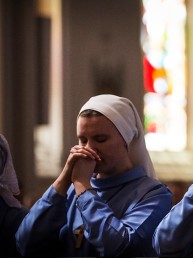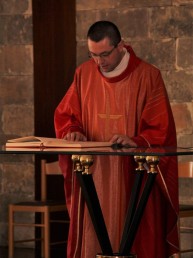Vocations
How do I really listen to God's voice?
But is God calling?
The Discernment Process
The Discernment Process is discovering God’s direction and guidance in the concrete reality of our day to day lives.
1. Stop and reflect!
Reflect on the ordinary events of our life: Indeed discernment demands sensitivity to our inner world and an ability to reflect on what we experience.
2. Don’t go alone! Inquire and take interest.
Talk to people whose opinion you respect. Read. If you are thinking of a religious vocation, talk to a Brother, Sister or Priest.
3. Get involved.
A great way to understand how you would enjoy ministry is to get involved in ministry by volunteering. The church needs young people like you.
4. Why not try the experience?
Visit religious communities, your parish, or the seminary. See how they live and work. Seminaries and religious communities are always ready to host people interested in spending a few days with the community to see first hand the life and ministry of a Sister, Brother or Priest.
5. Have a habit of personal prayer.
Spend a few moments each day in thoughtful conversation with the Lord. Ask the Lord, “Lord, what do you want me to do with my life?” In doing so we remain open to God’s direction.
6. Decide
The Church needs dedicated Sisters, Brothers and Priests to spread the Gospel of Jesus Christ. You can answer that call. After prayer, reflection, involvement and experience go with your heart. The bottom line question is, “Can I see myself as a religious, a church minister?” If the answer is yes, it is time to act. It is time to talk to a vocation director.



